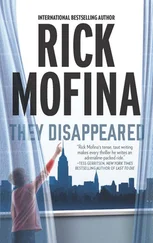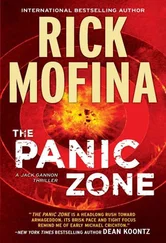Hedda’s agency advertised a range of adoption and surrogacy services to people desperate for a baby. At the same time, she advertised online for surrogates. Candidates were university grads, supermarket cashiers, hairdressers and stay-at-home moms.
Hedda explained to them how her agency did things a bit differently because of its international connections. After recruits signed a surrogacy agreement, they would undergo an embryo transfer or insemination in Europe because her agency had arrangements with leading specialists there.
Hedda assured the candidates that everything was in accordance with all laws, that all costs were covered and that she would provide a medical team to monitor the pregnancy. The surrogates would never have to meet the parents. Hedda’s policy was unconditional on that front.
Each surrogate would receive a total $60,000-$15,000 on signing then $45,000 upon delivery. The payments were conditional to certain terms, chief among them being delivery of a healthy baby. However, payments would not be made if the pregnancy was unsuccessful, and Hedda always hinted that under certain conditions, the surrogate might be required to return a portion of any advance payment-although Hedda would never dare enforce that aspect out of fear a surrogate would go to authorities. She only hinted at it as psychological leverage for the women who might change their minds.
Again, Hedda would stress that the entire enterprise was all legal.
But it wasn’t.
In order to circumvent various state surrogacy and adoption laws, Hedda would mislead the surrogates and the expectant parents about the circumstances of the parties involved. She would seek out hopeful parents and guarantee them the baby of their dreams, a newborn girl or boy of nearly any race. Then she would create fraudulent documentation that made the arrangements appear to be in accordance with adoption or surrogacy laws. But what Hedda had really done was create an illegal process of making and selling babies. She was hiring women to get pregnant for the sole purpose of selling the baby to those who could afford her price.
She was now getting $200,000 for each baby.
As Hedda’s business grew, she moved to Chicago, to be more central. And she was careful to manage any risk or exposure to scrutiny. At the same time, she was driven by a desire to find wealthier clients, to become the number one, albeit black market, baby broker in the world. Hedda knew that there were people who would give any amount of money for a healthy baby.
And Remy’s baby was the ticket to a client list that would pay more.
So much hinged on this deal.
Normally, Hedda would have another baby available but with this case she’d encountered one problem after another.
So what the hell happened?
It was going well until Remy disappeared. I can’t go to another mother for a baby to fulfill this critical order. It’s already overdue and I have no other suitable babies available. Two of my other surrogates just lost theirs. Two. I’ve got no Caucasian boys coming for over two months. Everything depends on Remy’s baby.
Hedda clicked her mouse and reread the email from her client.
Chelsea Drew-Flynn, forty-nine-year-old heiress to a gold-mining empire who lived in Denver. She wrote:
What’s the status on delivery, Hedda? Did she have the baby? We’ve surpassed the delivery date range.
Now, after consulting Ed Bascom, after absorbing the circumstances and the stakes, Hedda crafted a response.
Some routine medical issues are delaying delivery a little bit. I assure that everything is fine.
Hedda pressed Send then gazed at the lake, weighing all the stakes. Everything was riding on this one. Chelsea Drew-Flynn was going to exceed Hedda’s rate by paying $250,000 for a baby boy. But this deal held an even greater value. Chelsea had indicated to Hedda that she knew women, wealthy women, in her social circles around the world, who would be interested in using a surrogacy agency. Hedda interpreted that to mean that if all went well with Chelsea’s baby boy, she would introduce Hedda to a whole new level of potential clientele.
Hedda’s computer chimed with a response.
Just so we understand each other, Hedda. I trusted you to deliver my baby to me as promised. Heaven knows how I might react if you break that promise.
Hedda cursed to herself and looked out at the vast lake.
I’ve got to find that baby.
Dallas-Fort Worth Metroplex, Texas
Kate’s Chevy Cobalt drove westbound on Lyndon B. Johnson Freeway.
There were more shelters she needed to check out.
As the road rolled under her wheels she took stock of the past twenty-four hours, accepting the ebb and flow of a live news story.
Elements were in constant flux. There was little she could do.
While waiting for the many calls she’d made-to Frank Rivera, to Jenna Cooper and her sister, Holly- to be returned, she’d arranged for Newslead to obtain Tony Valdez’s dramatic footage of the tornado destroying the Saddle Up Center. The news agency posted it on its site with a warning about disturbing content. The video went viral, pleasing Chuck and New York.
Late yesterday, Kate had gone to the shelter at the Rivergreen Community Hall to find Jenna Cooper. Volunteers and other tornado survivors had told her that Jenna, Cassie and Holly had left.
No one knew where they’d gone.
Kate ended the day feeling somewhat baffled, and last night she got online and talked with her daughter. Filled with guilt, Kate ached to hold Grace as she showed her pictures of birds that she’d drawn.
“This one’s an owl.”
“I see. It’s very good, honey.”
It was this morning, as Kate stepped from the shower, that her phone rang with an overdue call back from Frank.
She froze, water dripping from her as he brought her up to speed on the horror Jenna and Blake Cooper had endured yesterday in a high school gym.
“Last night, with the help of Dallas police, the deceased baby’s parents were located and they identified him,” Frank said. “They’re tourists from Switzerland. They were in a park when the storm hit.”
Tears stung Kate’s eyes.
“Oh no, that’s so sad.”
“They’re making arrangements to fly home with him and aren’t talking to the press.”
“I’m so sorry for them.” Kate searched for a tissue then used her towel. “What about Jenna and her husband? How are they doing? I’d like to interview them.”
“Not so good. They spent last night in a hotel with Jenna’s sister. I don’t think they’re in a frame of mind to talk to anybody. They were informed that time is running out on the odds of finding their son alive.”
A moment of silence passed.
“Okay. Thanks, Frank.”
“If there’s anything I can do to help, give me a call.”
After Kate dressed, she went online to search for news and ideas to pursue the story. The updated overall figures for the tornadoes that had hit Texas, Alabama, Arkansas and Mississippi, were sobering. The death toll had risen to seven hundred, most still in the Dallas-Fort Worth Metroplex. The number of reported missing in all the states was now fourteen hundred, most around Dallas. The number of injured had risen to seven thousand people and the estimated number of homes, businesses and properties destroyed was now at least twenty thousand.
“Stay on the missing baby story,” Chuck told her when she’d called the bureau for her assignment. “New York likes it. It represents the human struggle against the storm. A baby ripped from its mother, a hardworking family holding out hope. It doesn’t end until you find out what happened to their son, Kate.”
All right, she would keep digging.
Читать дальше
Конец ознакомительного отрывка
Купить книгу












